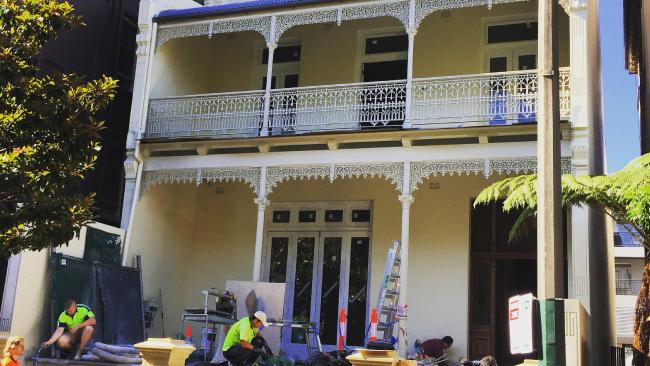
NEWARK — On the surface, the University of Northern New Jersey seemed legitimate. It had a website, with a seal featuring the Latin words “Humanus, Scientia, Integritas,” a list of business-oriented degrees offered and a promise of “an exceptional educational experience.”
It was so exceptional it did not exist.
Instead, the university was a fake, set up by the Homeland Security Department as part of a sting operation to ensnare criminals involved in student visa fraud.
On Tuesday, that operation resulted in the arrests of 21 people, the United States attorney for New Jersey, Paul J. Fishman, and Sarah R. Saldaña, the director of United States Immigration and Customs Enforcement, announced at a news conference here.
The people arrested were brokers who recruited foreign students who were mainly from China and India to an institution that they knew would not have real classes. The brokers, working with people posing as university officials, then charged the students in a scheme that allowed them to maintain their student visas and stay in the country, the government said. Some brokers also arranged, illegally, for work visas and jobs, the authorities said. Some of these so-called students, according to a law enforcement official, even used the fraudulent visas to get jobs at high-profile companies.
Those arrested were mainly naturalized citizens and legal permanent residents, Mr. Fishman said. Six live in New York City, including three in Flushing, Queens.
“Our message is pretty loud and clear,” Ms. Saldaña said in an interview. “We’re out there, we have intelligence to identify you, we’re going to find you and bring you to justice.”
The brokers arranged student visas for the University of Northern New Jersey for a total of 1,076 people. Most of the “students” will ultimately have their visas revoked, Ms. Saldaña said.
Continue reading the main story
Mr. Fishman said all of the recruited students were already living in the United States, having initially obtained visas legally, but were looking for a way to stay. Many were living and working throughout the country.
“All the defendants were pretty stunned about the charges,” said Michael Horn, whose client, Tajesh Kodali, 44, of Edison, N.J., pleaded not guilty. “They’re hopeful the truth will come out.”
The operation, the government said, was a way to understand the extent of the criminal network behind visa fraud, including how students are recruited, how fake universities work and what happens after the students are enrolled.
While the case exposed a network of fraud, it also exposed a gap in national security, the officials said on Tuesday. The brokers who negotiated visas did not do any background checks on their clients or their potential connections to terrorist organizations. Mr. Fishman said the United States government did vet the people who applied for student visas and did not find any threats to security.
Some of the so-called students used the visas to get jobs at Facebook and Apple, according to the law enforcement official, who spoke on the condition of anonymity because this information was not part of the complaints. ABC News reported that Facebook hired an applicant with a fraudulent visa, and that another visa holder went to the Army.
The official confirmed that one person did enlist, and that only one person was employed by Facebook, one person by Apple, two at Morgan Stanley and several at other prominent financial institutions.
Sign up to receive an email
when we publish other stories on education in New York City.
The University of Northern New Jersey opened in 2013, according to the complaints filed on Tuesday. The location was an office building in Cranford, N.J.
The university may have been billed as an institution of higher learning, but no learning took place. It purported to offer undergraduate and graduate degree programs in areas like accounting, marketing and health care management. To lure recruiters, it was listed as state-licensed and certified by the Homeland Security Department. But there were no classes and no faculty members.
No matter. “Once word got out, brokers descended on the school, clamoring to enroll their clients,” Mr. Fishman said.
The Homeland Security Investigations unit, which conducted the sting operation, had undercover agents accept calls from recruiters, according to several of the 14 complaints filed on Tuesday. These agents, in recorded telephone calls, warned the brokers that there would be no classes.
A defendant named Chaun Kit Yuen, 24, responded, according to the complaint, “We’ve been doing this for years, no worries.”
Some of the agents also obtained fraudulent work authorizations through the university in order to outsource their foreign national clients as full-time employees. A broker from Brooklyn, Syed Qasim Abbas, 41, who is an American citizen, owned an “information technology staffing company” in East Northport, N.Y., called Fastnet Software International, according to the complaint.
He paid the university $6,000 to obtain 20 visas for skilled workers, known as H-1B visas, the complaint said. (The government never issued them.) He paid another $17,750 to the school for arranging the extension of student visas.
Some brokers negotiated thousands of dollars of commissions from the undercover officials, one worth as much as $4,000, according to the complaint. Other brokers received illicit payments for placing students in jobs.
About 1.2 million students are currently in the United States on student visas, a majority of whom are legitimately attending universities, government officials said.
There have been several high-profile student visa fraud cases in recent years from California to New York, which represent a security concern for a government under pressure to screen visa applicants for possible terrorism ties.
The most prominent arrest in the case of sham universities, also known as visa mills, was in 2011. Susan Xiao-Ping Su, the founder of Tri-Valley University, in Northern California, was sentenced to 16 years in prison. The university had offered classes in engineering and medicine, but did not require that students attend them. More than 1,500 students, mostly from India, were affected, and not all knew that they were being defrauded.
In January, in a case brought by Preet Bharara, the United States attorney for the Southern District of New York, three executives of Micropower Career Institute, a for-profit college with five locations in the New York City-New Jersey area, pleaded guilty to visa fraud. Among other offenses, the executives took $7.4 million from foreign students in exchange for visas, prosecutors said.
In 2012, a Government Accountability Office report faultedImmigration and Customs Enforcement for not providing enough control in the verification process for student visas. Officials with ICE said it had since been trying to tighten its accreditation protocols.
Although the officials would not discuss how many fraudulent schools might actually be operating, Mr. Fishman said they were “too prevalent.”
For the recruiters, he added, “the University of Northern New Jersey was another stop on the ‘pay to stay’ tour.”
An earlier version of this article misstated Preet Bharara’s role in a case against three executives of Micropower Career Institute. Mr. Bharara brought the case against them; he did not sentence them.
[SOURCE :-nytimes]


